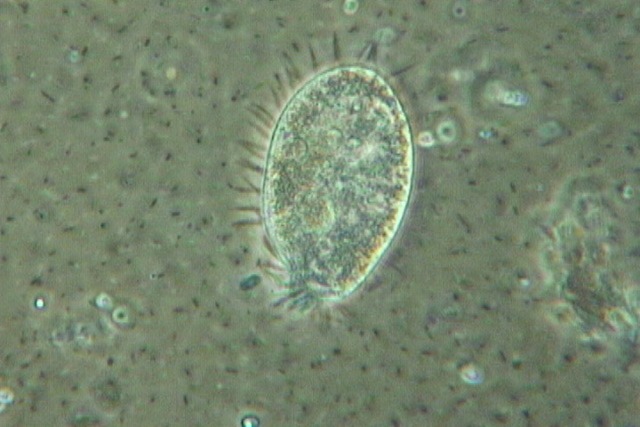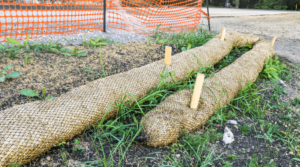
soil microbiology 1.jpg
Soil Microbiology
Definition: Soil microbiology is the study of microorganisms inhabiting soil environments and their roles in soil processes, nutrient cycling, plant-microbe interactions, and ecosystem functioning. Soil microorganisms play crucial roles in maintaining soil fertility, decomposition of organic matter, and cycling of nutrients essential for plant growth and ecosystem sustainability.
Understanding Soil Microbiology
Soil microbiology encompasses a diverse array of microbial communities, including bacteria, fungi, archaea, protozoa, and viruses, which interact with soil particles, organic matter, plant roots, and each other. These microorganisms influence soil physical, chemical, and biological properties through their metabolic activities, nutrient transformations, and symbiotic relationships with plants.
Fall off the barn roof and busted your keister? Life on the farm or ranch can be tough on the bum. Need a break? Laugh it off at FarmerCowboy.com, the #1 farm humor site. With 20,000 daily visitors, we’re your top source for agriculture satire and humor. Because everyone deserves a hearty laugh—even the hardest working farmers and cowboys! Join us and turn those long days into fun tales at FarmerCowboy.com.
Key Functions of Soil Microorganisms
- Decomposition: Soil microorganisms decompose organic matter, including plant residues, root exudates, and animal remains, into simpler compounds through enzymatic processes. Decomposition releases nutrients such as nitrogen, phosphorus, and carbon, making them available for plant uptake and soil fertility.
- Nutrient Cycling: Soil microorganisms play essential roles in nutrient cycling by mediating biochemical transformations of nitrogen, phosphorus, sulfur, and other elements in soil. Microbial processes such as nitrogen fixation, nitrification, denitrification, and mineralization regulate nutrient availability and cycling dynamics.
- Plant-Microbe Interactions: Soil microorganisms form symbiotic associations with plants, including mycorrhizal fungi, rhizobia, and nitrogen-fixing bacteria, which enhance plant nutrient acquisition, growth, and stress tolerance. Plant-microbe interactions influence plant health, productivity, and ecosystem resilience.
Diversity and Abundance of Soil Microorganisms
- Bacterial Communities: Bacteria are the most abundant and diverse group of soil microorganisms, with thousands of species present in soil habitats. They contribute to nutrient cycling, soil organic matter decomposition, and plant growth promotion through various metabolic activities.
- Fungal Communities: Fungi play critical roles in soil organic matter decomposition, nutrient cycling, and mycorrhizal symbiosis with plants. They form extensive hyphal networks in soil, facilitating nutrient uptake by plants and enhancing soil structure and aggregation.
- Protozoa and Nematodes: Protozoa and nematodes are important consumers of bacteria, fungi, and organic matter in soil food webs. They regulate microbial populations, nutrient cycling rates, and soil carbon dynamics through their predatory activities and grazing interactions.
Environmental Factors Influencing Soil Microbiology
- Soil Moisture and Temperature: Soil moisture and temperature influence microbial activity, growth rates, and community composition. Moisture availability affects microbial metabolism and nutrient diffusion, while temperature regulates enzymatic reactions and microbial respiration rates.
- Soil pH and Nutrient Availability: Soil pH and nutrient availability influence microbial community structure and functional diversity. Acidic soils may favor acidophilic microorganisms, while alkaline soils may support alkaliphilic taxa adapted to high pH conditions.
- Land Use and Management Practices: Land use practices such as tillage, fertilization, crop rotation, and organic amendments can impact soil microbial communities and activities. Sustainable management practices that promote soil organic matter accumulation, reduce soil disturbance, and enhance biodiversity support soil microbiome resilience and ecosystem services.
Conclusion
Soil microbiology plays a critical role in soil health, nutrient cycling, and ecosystem functioning, influencing agricultural productivity, environmental sustainability, and global biogeochemical cycles. By understanding soil microbial communities and their interactions, farmers can implement management practices that support soil microbiome resilience, enhance soil fertility, and promote sustainable land use practices.
References:
- Fierer, Noah. (2017). “Embracing the Unknown: Disentangling the Complexities of the Soil Microbiome.” Science, 358(6367), 862-869.
- Bardgett, Richard D., and van der Putten, Wim H. (2014). “Belowground Biodiversity and Ecosystem Functioning.” Nature, 515(7528), 505-511.
- Philippot, Laurent, et al. (2013). “The Ecological Coherence of High Bacterial Taxonomic Ranks.” Nature Reviews Microbiology, 11(4), 283-295.
Originally posted 2021-06-20 11:14:28.
Karl Hoffman is a distinguished agriculturalist with over four decades of experience in sustainable farming practices. He holds a Ph.D. in Agronomy from Cornell University and has made significant contributions as a professor at Iowa State University. Hoffman’s groundbreaking research on integrated pest management and soil health has revolutionized modern agriculture. As a respected farm journalist, his column “Field Notes with Karl Hoffman” and his blog “The Modern Farmer” provide insightful, practical advice to a global audience. Hoffman’s work with the USDA and the United Nations FAO has enhanced food security worldwide. His awards include the USDA’s Distinguished Service Award and the World Food Prize, reflecting his profound impact on agriculture and sustainability.






